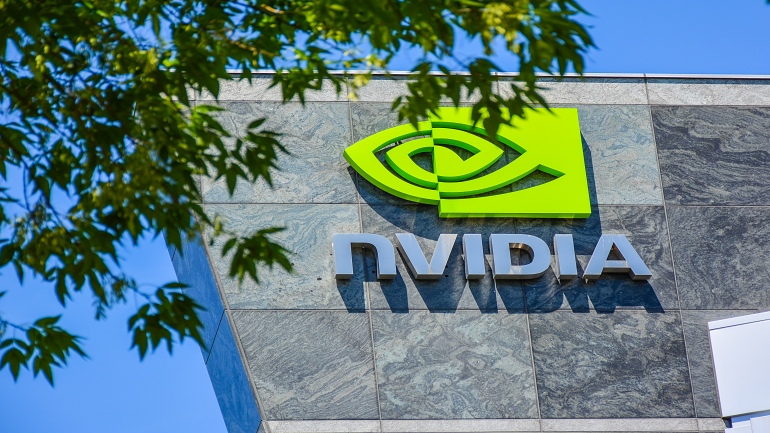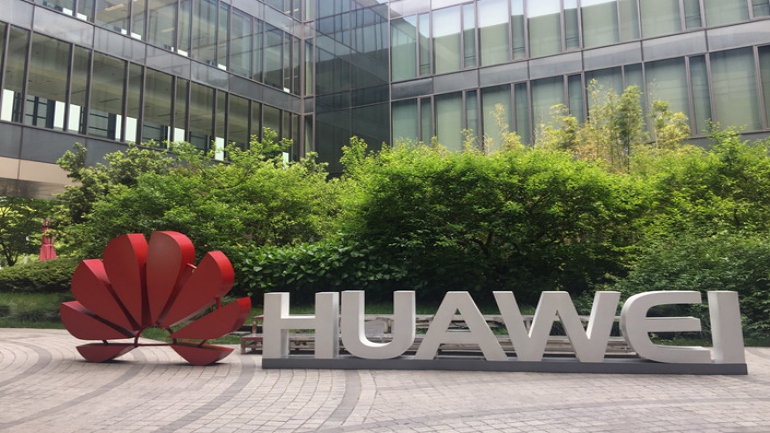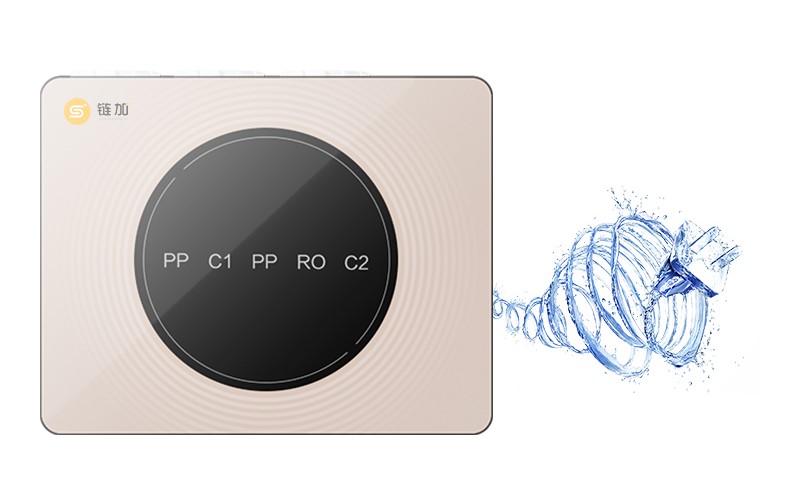The American chipset manufacturer Nvidia is rolling out its EGX platform to bring real-time artificial intelligence (AI) to the edge of the network. Nvidia EGX is an accelerated computing platform, which boasts low-latency AI that enables companies to perceive, understand and act in real time on continuous streaming data between 5G base stations, warehouses, retail stores, factories and beyond. AI computing will occur at the edge of the network, where sensors collect data before it is sent to cloud-connected data centers. This platform is expected to satisfy the increasing demand for AI applications to assist numerous devices streaming continuous raw sensor data and is designed for high-throughput AI at the edge where data is primarily sourced to achieve instantaneous and guaranteed response times while reducing bandwidth to the cloud. According to the company, by 2025, there could be up to 150 billion machine sensors and the Internet of Things (IoT) devices streaming…
China’s Huawei Technologies has launched new database and storage products with the aim of redefining its data infrastructure and strengthening the global presence of its cloud business. The world’s first AI-native database GaussDB supports differentiated scenarios such as private and public clouds and data services in the finance, internet, logistics and automotive sectors. Huawei’s FusionStorage 8.0 is claimed to be the industry’s best-performing distributed storage solution for supporting enterprise applications. “Humanity is entering the age of an intelligent world,” said David Wang, Huawei Executive Director of the Board and President of ICT Strategy and Marketing. “Data is the new factor of production, and intelligence the new productivity. Heterogeneous, intelligent, and converged databases will become the key data infrastructure of the financial, government, and telecoms industries.” With this new database management product, the Shenzhen-based company marks its official entry into the database field and places itself in direct competition with…
Most progressive and forward-thinking companies employ advanced technologies when trying to find new ways to strengthen commercial relationships and reinforce their business processes to promote growth. In today’s global digital world, telephony has become much more than just communications – it promotes innovation, efficiency, flexibility and integration. While more and more companies are seeking to adopt modern, cost-effective communication technology such as VoIP (Voice over Internet protocol), the task of communicating with customers and taking care of their needs is often accomplished using advanced and high-tech CRM (customer relationship management) solutions. VoIP-CRM integrations allow cloud VoIP providers to connect their customer’s CRM accounts with the implemented business phone systems, and exchange data between the two platforms. Let’s analyze the benefits of CRM and phone system integration, and the smart communication models for business that offer the combination of VoIP and CRM. The concept of VoIP-CRM integration In general, CRM…
The global organization representing the interests of mobile network operators, GSMA, has called for European governments to “safeguard network security and competition” in the telecommunications infrastructure industry. The association has issued a warning to Europe to refrain from activities that would obstruct the use of certain equipment necessary for 5G mobile network development. According to the GSMA, “Actions that disrupt the equipment supply for the various segments of the network (access, transport and core) will increase costs to European operators, businesses and citizens; delay 5G deployment by years across Europe and potentially also jeopardise the functioning of existing 4G networks upon which 5G is intended to be built.” Although no specific company names are mentioned in the statement, the GSMA initiative highlights the industry’s significant endeavor to prevent the application of additional sanctions, similar to those announced by the United States and Australian governments on Chinese vendors Huawei…
VoIP has become an integral part of the day-to-day lives of many people throughout the world, offering a plethora of technological advancements and options, simplifying many communication processes and making interactions more convenient and consumer friendly. VoIP is one of the most talked-about technologies, and its prevalence is anticipated to grow in the upcoming years. Over the last twenty years, VoIP has provided businesses around the world with the convenience of increased mobility, due to constant development and emerging cutting-edge technologies. The usage of VoIP as a service has grown rapidly – between 1998 and 2002, VoIP carried only 1-3% of all voice calls worldwide, but in 2005, VoIP was responsible for more than 200 billion call minutes. With 2019 already underway, let’s have a look at what the future holds for the VoIP communications industry. In particular, we examine the insights and predictions regarding the trends and technologies that will…
The technical support team plays a critical role in a VoIP business, being the initial reference and contact point for customers experiencing technology-related issues. In addition, these important employees are responsible for analysing and resolving system failures and outages, product installation errors, user enquiries and any other technical problems that prevent customers from using an application or service. There is a wide and diverse range of possible technical issues that can occur, depending on the type of telecommunication services provided. Nevertheless, some of the most common VoIP connectivity concerns are audio quality, caller-ID problems, the dropping of calls, and post dialling delay (PDD). Studies reveal that passing on valuable technical advice or providing substantial assistance to customers is the number one method for telecom companies to improve the user experience for their products and services. At voip.review, we have summarised some relevant ideas for VoIP providers to…
China Mobile, one of the largest state-owned telecommunications companies in that country, has designed a water purifying device powered by blockchain, thus making an explicit statement that blockchain technology is not something extraneous and out of this world, but is a beneficial high-tech solution that may be advantageously applied to ordinary household appliances. The Product Market Director at China Mobile IoT, Xiao Yi, stated: “Our goal is to also attract those who are not in the cryptocurrency or blockchain community, who may have heard of this technology but not necessarily understand it. To embrace a more mainstream adoption, we need to turn something that appears professional into something that’s very ordinary.” The Internet of Things (IoT) division within the company has developed a product with a built-in computing chip and an IoT module. This innovative gadget collects applicable user data related to consumer behaviour habits and shares it…
To improve emergency services and to better locate callers, The European Commission has approved a regulation that will require new smartphones to include satellite and Wi-Fi location. The integrated chipset with Global Navigation Satellite System (GNSS) must deliver access to the EU’s satellite system Galileo, which provides accurate positioning and timing information. Currently, most emergency services are faced with the challenge of only being able to locate troubled mobile callers within an area of several kilometers. However, the proposed use of satellite and Wi-Fi systems will enable 112 emergency number callers to be located within a range of less than 100 meters. Galileo-enabled devices receive signals for positioning, navigation and timing. This satellite system has been servicing around 400 million users, and this summer the system was supplemented by four more satellites, which were successfully launched from the European spaceport. Every additional satellite steadily improves Galileo’s performance, and,…
Job and project management company simPRO has launched a new VoIP phone solution for trade service businesses in New Zealand. The company believes that the new cost-effective integration will help increase employee productivity, expand service and reduce hardware dependency via the use of web phones. Jonathan Eastgate, simPRO Chief Technology Officer, believes that the VoIP phone integration will be beneficial to trade businesses looking to embrace the industry’s projected digital future. “When using simPRO, the VoIP will draw information to produce caller IDs and maintain call logs which can be viewed in a browser window – all you need is the internet and a headset,” he says. “VoIP provides a flexible, multi-functional solution that couldn’t be simpler to use. Without the need of a traditional telephone handset taking up space on the desk, users can make a call with a push of the mouse or keyboard and connect…
Ecosmob Technologies, a leading company in the VoIP industry, has announced the launch of a wholesale softswitch with cutting edge solutions in its open source technology. The company pays special attention to the development of high-quality and cost-efficient VoIP applications for telecom industries worldwide. With the upcoming 5G and other technology-related cutting-edge developments, it is obvious that the VoIP service providers and wholesale carriers will face the challenges with their growing business volumes. The anticipated success greatly depends on the choice of software and hardware integration, and cross-functional softswitches above all. Ecosmob’s Class 4 and Class 5 SoftSwitches open up more possibilities for wholesale carriers to make the necessary adjustments and offer consistent integration with other systems, like call center software and CRMs. The Class 4 SoftSwitch is employed for routing VoIP calls to international locations using an IP network. Key features of the custom development services…













